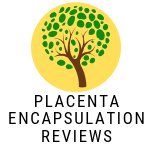
Depressed young woman with a cute baby at home
We all know that is important to ensure adequate preparations are made before delivery so that both you and your baby are safe and healthy during childbirth, labour and even beyond.
While prenatal care acts as preventive healthcare and handles the aforementioned, postnatal care deals with healing and maintenance. Together, they are essential for the smooth flow of the period from gestation to after parturition. However, there is a particular period which encompasses pregnancy, delivery, and post-delivery and is being identified to be very important and especially to postpartum health.
This particular period called the perinatal period has been identified by WHO as directly linked to maternal health. This period has varying definitions from different bodies ranging from 20-26 weeks of gestation to 1-4 weeks after birth. However, the WHO strictly limits this period as from 22 completed weeks (154 days) of gestation to 7 completed days of birth. Essentially, it is the period surrounding (peri-) birth (natal).
In recent times, the number of babies who die during pregnancy or childbirth has decreased drastically. However, this is not the case for the mothers as there has been in fact, an increase in maternal deaths. Maternal deaths and other postpartum complications have been on the rise and this has been linked to several causes including;
Trauma before pregnancy: it may interest you to note that even conditions that the mother experienced before getting pregnant could still affect her enough during pregnancy. It is better to try to solve these and prepare for an upcoming baby as past traumas tend to rear up their head and may cause complications during pregnancy.
Medical conditions: with the increasing number of cardiovascular, metabolic and other such disorders prevalent in the world now, they could act as a precursor to complications during the pregnancy.
Age of mother: women above 35 years are at a higher risk of coming down with pregnancy-related complications. In the first place, there is a decreased chance of getting pregnant due to declining fertility. Also, they usually have less ability to maintain pregnancy due in part to the declining health, the possibility of multiple births and hormonal imbalance. Therefore, they are at more risk of birth complications.
Perinatal care and maternal health
As earlier established, perinatal care is the care provided around the time of birth and has even been proposed to be the most important. At the beginning of this period, the body starts to prepare for parturition and this is essentially a very delicate time for both child and mother. Also, it is at this point that most mental health problems associated with pregnancy are observed to come up. Therefore, it is important to take perinatal care important.
Postpartum depression
Among the many complications that occur after pregnancy, postpartum depression is usually deemed to be one of the most serious. It was documented by the American Pregnancy Association that between 10-20% of all mothers and more commonly first-time mothers come down with this condition. While It usually presents in different ways depending on the woman, some attributes are similar and cut across. These are;
Crying spells
Mood swings
Difficulty sleeping
Anxiety disorders
Appetite problems
Feeling overwhelmed
Reduced concentration.
During the first two weeks post parturition, these symptoms may be observed and would generally go off on their own in 80- 90% of mothers. However, with postpartum depression, these symptoms do not wear off that easily and instead start to impede the mother’s ability to take proper care of her child and herself. At this point, it is important to bring in therapy and counselling to cure this problem.
Some risk factors associated with postpartum depression include;
Multiple births
Financial problems
History of depression
Unplanned pregnancy
Breastfeeding difficulty
Patients with bipolar disorder
Family members with depression
Stressful events over the past year
Health problems or special need child
Postpartum depression in a previous pregnancy.
It is extremely important to treat postpartum depression as soon as possible as it can bring about an extreme mood disorder called postpartum psychosis. Postpartum psychosis has more severe symptoms such as paranoia, confusion, health deterioration, hallucinations, delusions and also attempts to harm yourself and your baby.
There have been many documented and approved methods to treat postpartum depression depending on its severity such as psychotherapy and use of antidepressant agents.
Dealing with postpartum depression
Even though there are so many methods of treating and managing postpartum depression, it is known that prevention is always better than cure. With a situation as serious as postpartum depression, the process of avoiding it is certainly better than treating it and some salient tips could help with that.
Bearing in mind that we earlier mentioned perinatal care, it is posited that proper care before pregnancy and also before delivery would reduce the risk of such complications as postpartum depression.
Therefore, the tips that are essential to ensure you are in the right frame of mind to be a mother include;
